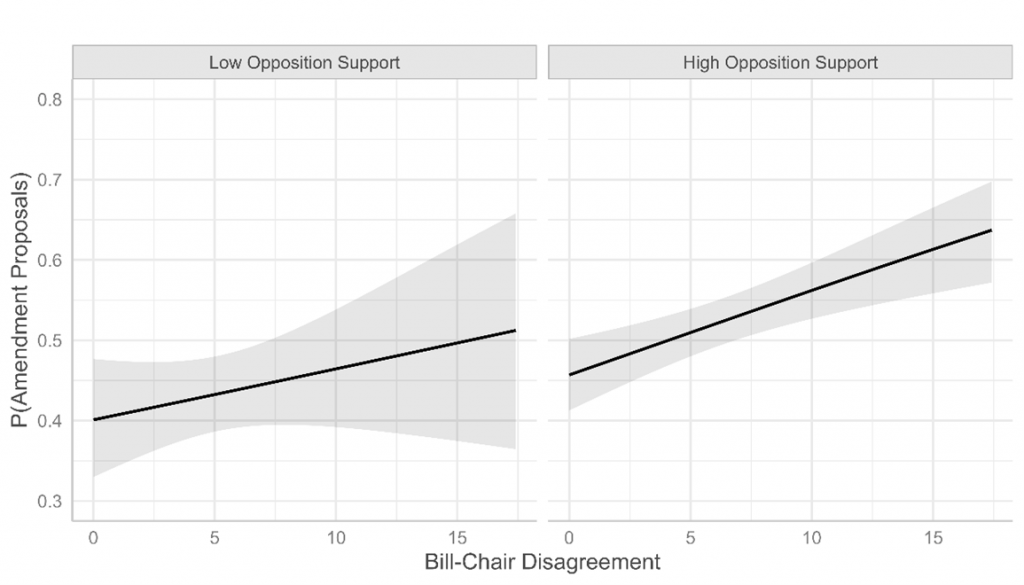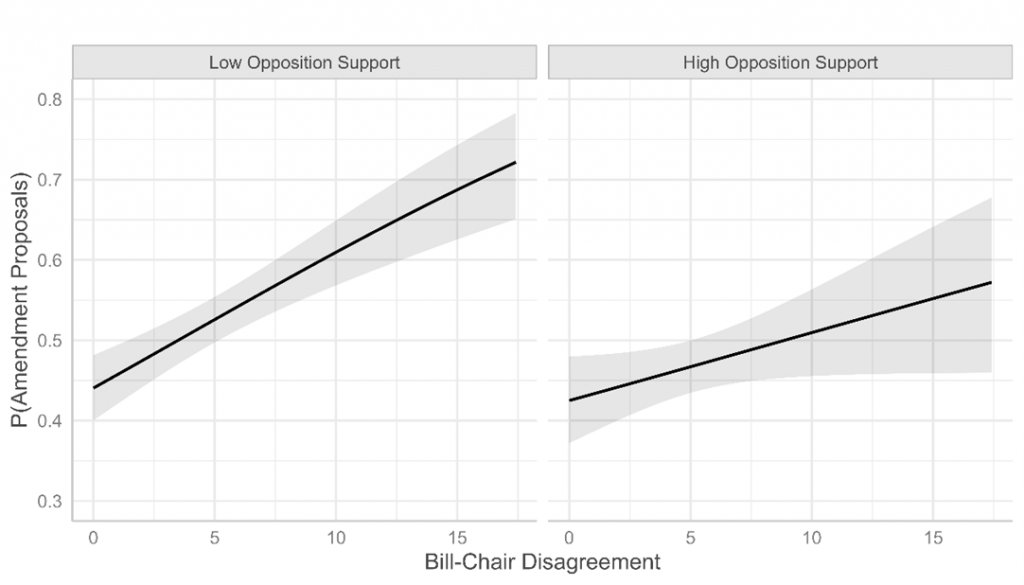Thomas König, Nick Lin, and Thiago Nascimento da Silva argue that opposition can challenge government agenda dominance in parliaments through the control of committee chairs. This also affects how coalition partners manage governance
Governing in parliamentary democracies requires majority support in parliament. This allows governing parties to set the policy agenda by implementing bills. Existing research shows that the government successfully implements most bills in the parliamentary policy-making process. On average, over 85% of government bills are approved in parliamentary democracies in Western Europe.
Parliaments approve over 85% of government bills in Western Europe, but opposition bills find approval at a far lower rate
In contrast, the passage rate of bills proposed by opposition parties and individual members of parliament is low. Sometimes it is less than 1%. This imbalance in passage rates between government and opposition bills leads to two key impressions. Firstly, that challenges to government bills are primarily a result of intra-government conflict. Secondly, that the opposition's role is marginal, or even negligible, in the policy-making process of parliamentary democracies.
Prior studies on coalition conflict among governing parties suggest that parliamentary institutions are a powerful source for challenging government bills in the policy-making process. Committee chairship is also probably one of the few roles that grant parties institutional powers to challenge government agenda dominance. Our study closely investigates under which conditions government bills receive more challenges. Specifically, we looked at challenges through chairship roles in parliamentary committees that allow governing and opposition parties to review government bills.
However, controlling the committee chairship alone may not be sufficient to challenge government agenda dominance, either by coalition partners or opposition. To investigate this, we bring a previously unexplored factor into consideration. This is unified support by opposition parties to committee chairship.
Control of the committee chairship is not enough to challenge the government's agenda dominance
Thus, the study specifies the conditions for challenging government bills. In addition to the level of policy disagreement between the bill and the committee chair, we examine how opposition support to the committee chairship moderates challenges to government bills through amendment proposals.
We analysed over 7,000 government bills proposed by different governments across time, in Denmark (2004–2015), Germany (1980–2012), and the Netherlands (1998–2015). By doing this, we demonstrate that opposition support to a committee chair is essential in understanding challenges to government bills from coalition partners and opposition.
Figure 1 below indicates that government bills are more likely to be challenged when an opposition party controls a committee chair. This is also the case when the policy disagreement between a government bill and the chair increases. Moreover, this effect is more pronounced the higher the opposition parties’ support of the chair.

Also, support from opposition parties may shape the likelihood of government bills being challenged by coalition partners controlling committee chairship.
When the government is ruled jointly by coalition parties, a greater policy disagreement between a government bill and a chair controlled by a coalition partner increases the likelihood of bill challenges. Yet, as Figure 2 illustrates, this effect is not present when the support of opposition parties to the chair increases.

These findings suggest that a unified opposition not only makes challenges to the government’s policy agenda in parliaments more likely. It also conditions the partners’ decision to challenge a bill. This effect is independent of whether the government bill represents coalition compromise or the policy position of the party that holds the office.
A unified opposition makes challenges to government policy agenda more likely, and affects partners' decision-making
This suggests that a coalition partner chairing a committee attempts to avoid opposition parties benefitting from a bill challenge. It may raise coalition tensions and signal their electorate coalition conflict on the policy agenda. Consequently, a high likelihood of opposition support fosters amendment proposals only under opposition chairship. Under coalition partner chairship, it decreases the likelihood of challenges to government bills. Hence, opposition support affects government dominance under opposition and coalition partner chairship in different directions.
Our findings are of great relevance to a nuanced understanding of democratic representation. They demonstrate the role of opposition support in parliamentary democracies. Even without holding a majority in parliament, opposition support to committee chairs affects when, and how, a government’s agenda dominance is challenged.
Of course, the opposition’s ability to influence challenges of government bills does not call into question government agenda dominance in parliamentary democracies. Yet, our work constitutes a valuable starting point. Scholars must avoid underestimating the role that opposition support can play in combination with specific institutional settings of parliamentary democracies.